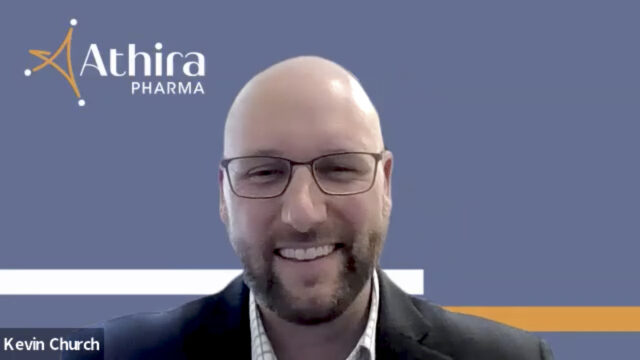Suzanne: And welcome everyone to Answers for Elders Radio Network heard across the USA. And we’re so excited every week to be coming into brand new communities across the USA. And I am very, very excited and also this is an important program for so many of us. If you’ve noticed a senior loved one asking you kind of frequent questions, things that you just answered, if you’re concerned about a little bit of memory issues, or anything like that, this program is absolutely for you and I hope that you will listen to it because we are great believers in doing whatever we can to be at the forefront of different situations. And such is Alzheimer’s and dementia. It’s an absolute growing — I, I hate to use the word phenomena because is, it’s not a nice, nice thing to happen — but it is really escalating in this country. And Alzheimer’s disease, the other side of it, is there’s organizations that are on the cutting edge of clinical research and development that I do believe this is the exciting part that there will be a cure someday. And we are here with a gentleman by the name of Kevin Church, and he is the Chief Science Officer and Senior Vice President of Athira Pharma, who actually works with clinical trials and information that’s at the cutting edge of Alzheimer’s disease. And Kevin, I’m so glad to have you with us. Thank you for being on Answers for Elders.
Kevin Church: I’m happy to be here. Thank you, Suzanne for having me.
Suzanne: We’ve been very involved in this whole… everybody’s hanging on every kind of information, but even before we get into the great stuff, let’s set the show up this week, talking about it, is Alzheimer’s is still growing. It’s getting more and more prevalent. Could you give me a little bit of a blueprint of what’s happening right now with Alzheimer’s disease in the US?
Kevin Church: Yeah, you’re absolutely right. It is growing. it’s a major or critical unmet need. That’s how we usually phrase it. And it is growing with an aging population, we’re seeing the prevalence increase, there’s about 6.5 million adults currently in the US diagnosed with Alzheimer’s. We think it’s actually under-diagnosed so that number is probably higher. And the projections are quite frightening, actually, that by 2050 there could be 50 million patients worldwide with Alzheimer’s, as many developing countries continue to age, we’re seeing more and more, and life expectancy increases. We’re seeing more and more cases of this. So it is a critical unmet need, and it’s an area of great interest for us here at the and across the pharmaceutical industry.
Suzanne: I think one of the things that we as family members, we may tend not to — if we see like mom or dad asking the same question over and over again, we just pass it off as, “Oh they forgot,” or “It’s just they’re having a bad day,” or whatever. So we don’t realize that there could be something going on in the early stages. How are you finding a typical time is when people get diagnosed?
Kevin Church: Typically the average age of onset or diagnosis is after 70. There’s a range, there, probably around 75. Typically it’s diagnosed after 60 years old. Any diagnosis before that’s quite rare, but it does happen. 10% of cases actually are what we call early onset, which would be under the age of 60. And so, typically, after 60 your risk increases and that continues to increase with age up until about 85 then it, it levels out at that point. We’re seeing an increased incidence as we have this growing senior population.
Suzanne: And you know, it’s because of organizations like you, there are many individuals that we’ve talked to… Go to Answers for Elders and you could certainly check out the podcasts under Athira Pharmaceuticals on our website. But we’ve had the privilege of interviewing so many amazing doctors that are at the forefront of this type of research. And it all starts basically in the scientific labs where you reside, and obviously you’re gaining data constantly from different aspects of how the disease progresses, what happens, et cetera. I’m just curious. We’ve just had a pandemic. What are you finding of how that’s changed the footprint of Alzheimer’s?
Kevin Church: Yeah, that’s a great question. I think it’s of big interest to a lot of people and to the health care industry in general. And there’s still a lot of unanswered questions. I mean, we don’t understand the long-term impact of COVID, the COVID infection, we’re starting to understand that, but it’s still still a lot of unknowns and we don’t really understand yet the long-term impact of the lockdowns and the changes in behavior that we had to endure during the pandemic. We know a couple of things that are coming out in the literature. from groups who are researching this, is that it does appear that COVID infection can increase risk of developing dementia later. And it can also exacerbate , or kind of increase the progression of ongoing dementia. So that is something we learned, which was very unfortunate. And we also learned that there’s particularly psychiatric, but it can also risk to the social isolation that a lot of people during the lockdowns were cut off from friends and family, and also the reduced physical activity. If you’re stuck in your house, you’re not exercising as much, typically, you’re not getting out. And so those can have negative impacts on long-term health, including cognitive health. And so there’s still a lot of unknowns but some studies are coming out. And so I think that situation with the pandemic is also going to increase the number of diagnoses that we see in Alzheimer’s.
Suzanne: There’s probably a lot of people that didn’t get diagnosed during the pandemic. The diagnoses are probably coming later in, in the progression. Has that been a factor?
Kevin Church: I would say, absolutely. I I haven’t seen specific statistics on that, but that’s the general idea or the consensus. People didn’t go to the doctor for years, unfortunately, in some cases, so they did not get diagnosed, and maybe they’re getting diagnosed now and it’s later in the disease than they would have been normally diagnosed.
Suzanne: Absolutely, I think that is a factor. And just a little bit about what Athira does… just tell us a little bit of what your company does.
Kevin Church: Sure. So we are a pharmaceutical company, so we are looking to develop therapeutics or treatments for neurodegenerative diseases such as Alzheimer’s and Parkinson’s. Also ALS. Our main program is in Alzheimer’s, we have a phase 2… 3. So it’s a late stage development, a clinical development of our, our lead program called fosgonimeton. If I can take just a few seconds to describe what it does, it’s an interesting and quite a unique approach in terms of how this drug could work. How this potential therapy could work is that it targets a neurotrophic factor, and if I can break that word down, so, neuro is nerve, right? And trophic means to nourish. So it’s essentially a factor that helps nourish or help nerve cells survive and grow. We’re trying to enhance that. We’re trying to augment that activity. And we’ve seen some really encouraging results in our laboratory experiments and pre clinical studies. So we’re continuing its development.
Suzanne: This information is really interesting and I want to go a little bit more into our next segment about what happens with the brain. How we deter determine how Alzheimer’s is diagnosed, a little bit with you. And in the meantime, if somebody’s interested in getting involved in a clinical trial, and being at the forefront of Alzheimer’s disease, if they have early or moderate stages of Alzheimer’s, please pick up your phone or whatever and go to a website, and Kevin, what is that website that we go to?
Kevin Church: Well, it’s called https://www.lift-adtrial.com/ for our particular trial, but also https://clinicaltrials.gov for any Alzheimer’s trial.
Suzanne: That’s really important. And so Kevin and I are, we’re gonna talk about a little bit more about how these clinical trials work and what goes on right after this.













